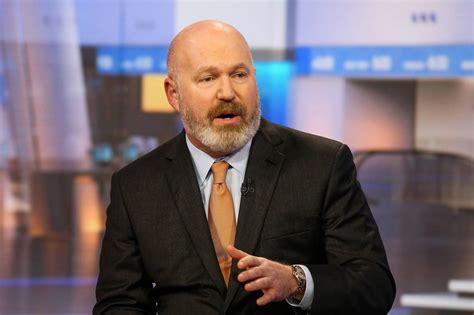A Quote by John C. Bogle
The general systems of money management today require people to pretend to do something they can't do and like something they don't. It's a funny business because on a net basis, the whole investment management business together gives no value added to all buyers combined. That's the way it has to work. Mutual funds charge two percent per year and then brokers switch people between funds, costing another three to four percentage points. The poor guy in the general public is getting a terrible product from the professionals.
Quote Topics
Added
Another
Basis
Because
Between
Brokers
Business
Buyers
Charge
Combined
Four
Funds
Funny
Funny Business
General
General Public
Getting
Gives
Guy
Investment
Investment Management
Like
Like Something
Management
Money
Money Management
Mutual
Mutual Fund
Mutual Funds
Net
People
Per
Percent
Percentage
Points
Poor
Pretend
Product
Professionals
Public
Require
Something
Switch
Systems
Terrible
Then
Three
Today
Together
Two
Value
Way
Whole
Work
Year
Related Quotes
Mutual funds charge 2% per year and then brokers switch people between funds, costing another 3-4 percentage points. The poor guy in the general public is getting a terrible product from the professionals. I think it's disgusting. It's much better to be part of a system that delivers value to the people who buy the product. But if it makes money, we tend to do it in this country.
While it is probably a poor idea to own actively managed funds in general, it is truly a terrible idea to own them in taxable accounts... taxes are a drag on performance of up to 4 percentage points each year... many index funds allow your capital gains to grow largely undisturbed until you sell... For the taxable investor, indexing means never having to say you're sorry.
The culture of the mutual fund industry, when I came into it in 1951, was pretty much a culture of fiduciary duty and investment, with funds run by investment professionals. The firm I worked with, Wellington Management Co., they had one fund. That was very typical in the industry... investment professionals focused on long-term investing.
Invest in low-turnover, passively managed index funds... and stay away from profit-driven investment management organizations... The mutual fund industry is a colossal failure... resulting from its systematic exploitation of individual investors... as funds extract enormous sums from investors in exchange for providing a shocking disservice... Excessive management fees take their toll, and manager profits dominate fiduciary responsibility.
It's my guess that something like 5% of GDP goes to money management and itsattendant friction. I define it broadly - annuities, incentive pay, all trading, etc. Nobody else has used figures that high, but that's my guess. Worst of all, the people doing this are among the best and the brightest. Hundreds and thousands of engineers, etc. are going into hedge funds and investment banking. That is not an intelligent allocation of the brainpower of the civilization.
Hedge funds are investment pools that are relatively unconstrained in what they do. They are relatively unregulated (for now), charge very high fees, will not necessarily give you your money back when you want it, and will generally not tell you what they do. They are supposed to make money all the time, and when they fail at this, their investors redeem and go to someone else who has recently been making money. Every three or four years they deliver a one-in-a-hundred year flood. They are generally run for rich people in Geneva, Switzerland, by rich people in Greenwich, Connecticut.































